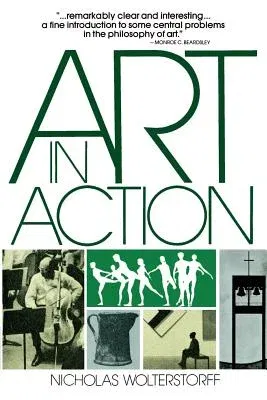Nicholas Wolterstorff
(Author)Art in Action: Toward a Christian AestheticPaperback, 1 May 1980

Qty
1
Turbo
Ships in 2 - 3 days
In Stock
Free Delivery
Cash on Delivery
15 Days
Free Returns
Secure Checkout

Print Length
250 pages
Language
English
Publisher
William B. Eerdmans Publishing Company
Date Published
1 May 1980
ISBN-10
0802818161
ISBN-13
9780802818164
Description
Product Details
Author:
Book Format:
Paperback
Country of Origin:
US
Date Published:
1 May 1980
Dimensions:
23.42 x
15.65 x
1.68 cm
ISBN-10:
0802818161
ISBN-13:
9780802818164
Language:
English
Location:
Grand Rapids, MI
Pages:
250
Publisher:
Weight:
385.55 gm